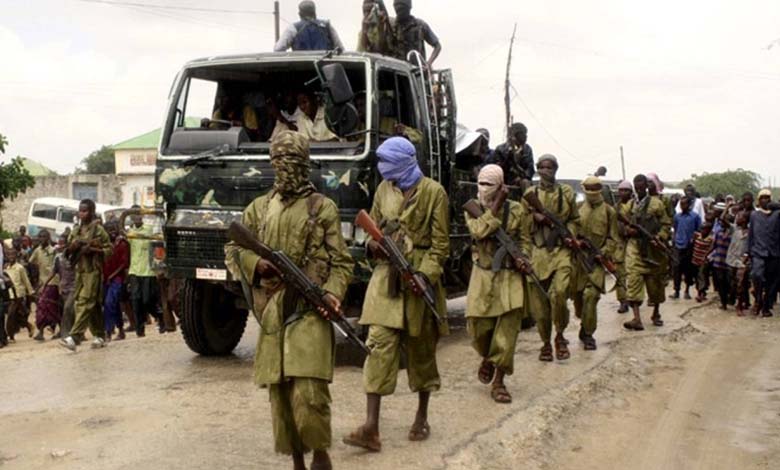Somalia’s Efforts… Drying Up Sources of Funding for the Youth Movement

More than 12 explosions occurred in Mogadishu, the capital of Somalia, and its outskirts, in the months of November and December 2023. These bombings revealed a clear pattern, targeting the Hormuud Telecommunications company. The bombings resulted in the killing of at least three employees and the destruction of offices, communication towers, and vehicles.
Analysts believe that Al-Shabaab targeted the largest telecommunications company in Somalia after it denied “Zakat” to this terrorist group.
Norwegian academic Jarl Stig Hansen told Africa Report magazine: “I believe this happened because they refused to pay Zakat; the situation has become tougher for Al-Shabaab, but this battle over Zakat in Mogadishu is not over yet, and it depends on the number of bombs that can target major commercial companies within Mogadishu.”
The Somali government began focusing on drying up the sources of funding for Al-Shabaab in 2022, and it had some success in banning bank accounts and mobile phones associated with them. However, these Al-Qaeda-affiliated terrorists continue to finance their attacks by imposing Zakat (monthly and annually) in cash and laundering money by purchasing gold from around the world, and terrorizing bank officials with the threat of violence.
Matt Bryden, a security expert and strategic advisor at the Sahann Research Institute in Kenya, believes Somalia is engaged in a fierce battle.
He told Africa Report: “They have a real and strong tax base; you can call it extortion, you can call it what you want. But it exists, it’s real, and it pays off. They may rely more on keeping money in the areas in cash, or make merchants pay them in kind, so they don’t have to transfer large sums, and they are highly adaptable, and their financial base is much larger than a few hundred bank accounts in Mogadishu.”
Al-Shabaab is considered one of the richest armed groups in the world, earning between $100 million and $150 million annually through extortion, imposing Zakat on local projects, companies, and individuals, facilitating illicit trade, and collecting fees on goods at checkpoints on roads and ports in the territories it controls. It controls vast areas of the country’s central and southern regions, where trade activities rely on agriculture.
A Somali expert in electronic banking services, who requested anonymity, stated that banks face a double-edged sword as they need to benefit from this militant group, and are willing to circumvent regulations put in place by the government in 2022.
He told Africa Report: “Banks have frozen funds in bank accounts, but they allow them to withdraw money easily because they don’t want them to leave the bank. They negotiate with the bank president, who doesn’t want to lose their business, and pressure bank managers to release the frozen amounts.”
He also mentioned that the government has taken measures to counter this, requesting cameras to be installed in Bakara Market in Mogadishu to reduce extortion. However, the “Amniyat” apparatus only demands money; it is the security and intelligence wing of Al-Shabaab, responsible for collecting its money and managing its finances.
Dr. Yahya Haj Ibrahim, a resident academic in Mogadishu, believes empowering people to resist Zakat is the best opportunity for the government to dry up the funding sources of the movement.
He told Africa Report: “The civil society gathers against them, they go to the police station when they see them. They are a wealthy organization, but their wealth is declining, and the nomads refuse to pay Zakat, and they cannot enforce it on them.”
He said he is confident that “the government is squeezing them hard, and Somali intelligence has penetrated them, and the government is arresting people from areas controlled by Al-Shabaab.”












